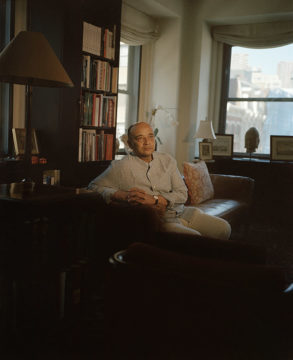Mark Vendevelde in Financial Times:
 Please use the sharing tools found via the share button at the top or side of articles. Copying articles to share with others is a breach of FT.com T&Cs and Copyright Policy. Email [email protected] to buy additional rights. Subscribers may share up to 10 or 20 articles per month using the gift article service. More information can be found here.
Please use the sharing tools found via the share button at the top or side of articles. Copying articles to share with others is a breach of FT.com T&Cs and Copyright Policy. Email [email protected] to buy additional rights. Subscribers may share up to 10 or 20 articles per month using the gift article service. More information can be found here.
https://www.ft.com/content/7d9678e0-ab1b-11e8-89a1-e5de165fa619
Kwame Anthony Appiah is a black, gay, American man who is descended from aristocrats and speaks English with one of those BBC accents you pick up at the better British schools. You probably think these facts tell you a certain amount about him. Highlight text Appiah, a professor of philosophy in New York, knows such badges matter — he has made a career studying concepts like blackness and gayness, social labels that guide us through humanity’s ungraspable diversity — but he wants you to know that most of what they signify is pure baloney. Consider race. Thomas Jefferson, often described as one the most enlightened of American thinkers, thought black people smelled worse than whites, required less sleep, had comparably good memories, but couldn’t master geometry. Today no one could count such outrageous views as enlightened; but as Appiah understood, they were the product of a time in which white colonialists had used the idea of an inferior race to justify mass exploitation. “The truth is that there are no races,” he declared in a 1985 essay that earned him fame among philosophers and social theorists, and notoriety among some of his African-American peers. “The ‘whites’ invented the Negroes in order to dominate them,” he later wrote in the award-winning essay collection In My Father’s House (1992).
More here. (Note: At least one post throughout the month of February will be devoted to Black History Month. The theme for 2022 is Black Health and Wellness)
